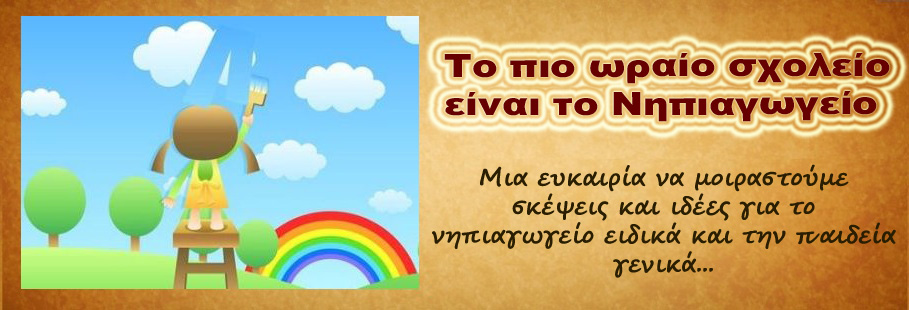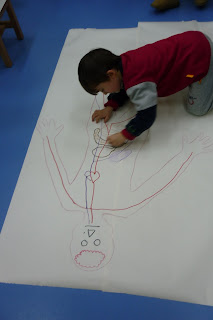What you say to parents is important. How you say it is even more important. Realizing what parent personality type you are conferencing with is priceless. It's the key to productive conversations and a successful school year. Read on to learn the seven parent personality types and how to deal effectively with each one. Teachers may encounter one or a combination of the seven personality types below. For instance, I'm a Helicopter/Doer/Know-It-All parent — a teacher's nightmare. If you are a teacher, what personality types are you dealing with? And if you are a parent, what personality traits do you exude during conversations about your child's performance?
As a new teacher I was surprised by some of the comments and responses I heard from parents during family conferences. However, in my new role as parent and teacher, I understand the psychology and range of emotions that can fill a classroom during conferences. Those emotions can turn a teacher's simple statement into a call for violence or a call for positive action. Below, watch how one message: "Mary needs to consistently review her sight words" should be altered based on the parent type that is receiving the message.
1. The GHOST
You've heard of this parent's legendary existence, but still have not seen this being with your own eyes. More often than not, this can be attributed to fear or intimidation. The "Ghost" or absentee parent may have had a traumatic school experience and feels no need to return to the scene of the crime.
Common sightings: Struggling dyslexics, English language learners, parents convinced they can offer no academic assistance to their child.
It took great courage for two dyslexics, several English language learners (one of whom cried during most of the conference), and a dad with a 5th grade education to share their stories in my classroom. Find a way to be welcoming to the "Ghost" on your parent roster. You may make school the place the neediest families can get empowered.
Your message (at pick up, drop off, or anywhere you can catch the "Ghost") becomes: Mary talks about you and your pie recipes all the time. Our class is dying to taste a pie! Perhaps you could come in for a few minutes one day and show me how to make it. The kids would love it, and if you have time, I can show you Mary's great work.
2. The EGO
This parent lives vicariously through their child. The "Ego" may refuse to hear anything that may be construed as negative, or that a child requires more work or special testing. This parent may be in denial.
Common sightings: New parents, overbearing dads, absentee dads.
Your message becomes: Mary loves books. I can't keep her out of our library! Is someone a voracious reader in your house? . . . Ohhh, I should have guessed that. You can tell how important your input is to her. She models you. Let's talk about taking her to the next level. If she reviews her sight words every night, she will easily jump to harder books. With your help, she'll kill that sight word list. Let me show you what some of our class dads are tackling.
3. The KNOW-IT-ALL
There are two types of "Know-It-Alls." Those who may actually know it all (highly skilled, veteran teachers who continually re-educate themselves) and those who purport to know it all. The latter assume that your job requires no skill and will proceed to speak to you as if you are one of their children. The former will share how long they have been teaching or drop credentials. The former will also offer suggestions and ask leading questions to discover your skill level, motives, or theories on current debates in education.
Common sightings: Perfectionists, active or retired educators and administrators, chauvinists, CEOs, anti-union enthusiasts, lawyers.
Time to drop some knowledge on this parent! Assure the Know-It-All that they are dealing with a professional.
Your message becomes: I'm working to make sure Mary will be a fluent and confident reader. You know that Dr. Dolch compiled a list of words that just don't follow basic phonics principles. By the end of this year Mary should have mastered all 220 words on Dolch's list. Let me show you our plan (Mary's, mine, and Dr. Seuss') to attack Dolch's tricky compilation and move to the next reading level. Once we conquer the service words, we will move on to Dolch's nouns.
4. The HELICOPTER PARENT
This overprotective parent can be a blessing. Put their hovering power to use on class field trips, in a well-used class library in need of organization, or in a chaotic cafeteria.
Common sightings: Nervous new parents, overachievers,
Tiger Moms.
You may need this parent's assistance, but praise their child for the work she or he does independently. Bask the "Helicopter Parent" in true tales of skills the child has acquired without parental intervention. The child will appreciate your vote of confidence, and the parent will be very proud.
Your message becomes: Mary is working so hard to learn her sight words. I'm really proud of her. Sight words are incredibly tricky, but she is determined to learn those words. She made a sample sight word bracelet to show you two. Mary, tell your parents the steps you took to make your reading bracelet. Who knows . . . ? Together, for just two or three minutes a night, the three of you might have fun reviewing the words or having a sight word fashion show.
5. The FIGHTER
Read their body language! It doesn't matter what you say — the "Fighter" will be angry. This parent is looking for a place to dump their frustrations.
Common sightings: Any parent who has had a rough day.
Smile. Find some way to compliment their child's work. Refuse to soak up their negative energy and they may return days later to apologize or praise your work with their child.
Your message becomes: Ms. Mary is working so hard to learn her sight words. I'm really proud of her. Sight words are incredibly tricky, but she is determined to learn those words. I made a sample sight word bracelet for her. Who knows . . . ? Together, for just two or three minutes a night, you two might have fun reviewing the words or having a sight word fashion show.
6. The DOER
Got a problem? Give it to a "Doer." This parent will listen carefully, be grateful for your advice, and follow your detailed suggestions.
Common sightings: Tiger Moms, nervous new parents, overachievers.
Teamwork between the Doer and the teacher provides the ultimate support system for a child.
Your message becomes: Mary needs to review her sight words consistently. Make it fun by creating a sight word bracelet and necklace for her. Here is a sample I created for you. Boldly list each word on an index card. Talk about the words together. Create a meaningful sentence for each word and write a sentence on the card. Let Mary draw a picture below each sentence. Show off that sight word jewelry for guests, friends, and every time she reviews them. She will master those words quickly!
7. The SOCIAL BUTTERFLY
Is this a conference or a party? Who invited the parent to sit hip to hip with you? If you are a young, attractive, and single teacher, beware. Some parents will mistake this meeting time for speed dating. No sexual attraction there? You may just have a parent who likes to talk incessantly.
Common sightings: The newly divorced, love- or attention-hungry parents.
Beware! This "Social Butterfly" may make you uncomfortable or talk too much and ambush your conference schedule.
Your message becomes: Mary needs to review her sight words every night. Nexxxxt!
http://www.scholastic.com/teachers/top-teaching/2013/02/seven-parent-personality-types




















































